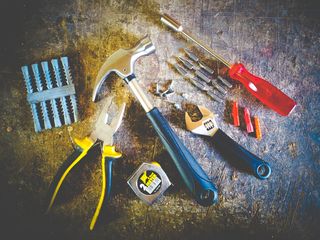Health
Mental Health Toolkit for Teenage Boys
Our sons need tools to promote mental health during the teenage years.
Posted April 1, 2020 Reviewed by Gary Drevitch

In times of chaos, it is easy to neglect taking care of our mental health. Routines are disrupted, fears emerge, and we are doing things we have never done before. As parents, we have to create a structure at home that was previously often created for us, with school, work, sporting events, playdates, and practices. We have to balance our own needs as adults with our kids’ needs as well. And while Pinterest shows handmade schedules that parents have created for their families during the quarantine, our household of two psychologists and three teen/tween boys is trying to go with the flow and keep our heads above water. Thinking about and addressing mental health is something my husband and I both do professionally and, as a result, we also incorporate mental health care into our parenting. While raising teenage boys, I think it is important for my sons to have certain tools to take with them in order to promote mental health especially as they go out into the world. In today’s turbulent times I think the same toolkit exists, with some modifications, to help teenage boys maintain their mental health. Here are the five tools I want my teenage son, and all teenage boys, to have in their mental health toolkit:
- Friends. Teenage boys need connections with their friends. When our boys were younger we made it a point to help them nurture friendships. We would encourage them to invite friends over so that they could spend time with them and we could get to know them too. As they’ve entered adolescence, we have taken more of a hands-off approach when it comes to being involved with helping them choose their friends but we emphasize the need to have good friends in their lives. Pre-quarantine, they would spend time with their friends after school and on weekends. During quarantine, our boys chat with their friends online and play video games. Their friends help them maintain a sense of normalcy and continue to have shared experiences even though they are physically separated.
- Healthy hobbies. Hobbies are important for all of us to develop, as they give us a break from work/school and allow us to pursue outside areas of interest. Breaks and fun activities are necessary for mental health. Teenage boys need hobbies but may have difficulties finding appropriate hobbies, given financial resources necessary to participate in some (like sports) or to obtain materials for others (like music). Exposing your teenage son to as many different possibilities, through books, online searches, or talking with others, can help your son to develop an interest in a hobby that will allow an outlet for coping with stress or tough times.
- An adult connection. Although my six-foot tall teenage son may look like an adult he certainly does not act like an adult. He sometimes makes questionable choices as he is trying to navigate through life and into adulthood. I want each of my sons to have connections with adults who can help guide them through adolescence and show them potential consequences when they are faced with decisions. As parents, we try to do a lot of listening to our sons while we are talking with them. But as psychologists, we also know that part of raising teenagers involves enlisting the help of other adults too, including teachers, coaches, grandparents, and mentors. These adults give our teenage sons others to reach out to when they are having trouble, and help us make sure our sons are maintaining their own mental health.
- Space that is their own. Teenage boys need access to some kind of physical space for which they are responsible. Even if he does not have his own bedroom, he likely has a bed or some portion which is his own. Giving your son a space that is his own will allow him to have a place to retreat when he wants to escape, think, or process his emotions on his own. Of course there are limits and as parents we maintain actual ownership of the space (and can search it at will if we think something is going on) but our teenage sons have their own rooms and know that they can go there to recharge. This has been particularly helpful during the current quarantine climate where we can come together as a family for meals and games but each of us has our own space for productivity and mental refresh.
- Exercise. Exercise in some form is essential to maintain mental health. Teenage boys might need some gentle encouragement, but it is crucial that he engages in some kind of regular exercise. For boys who are not involved in, or interested in, sports, this can be tricky but any teenage boy can go for a walk or a run, follow a yoga class on Youtube, or lift weights (or gallon milk jugs). Exercise helps relieve stress and releases endorphins. It will also help set your son up for healthy habits in adulthood.


